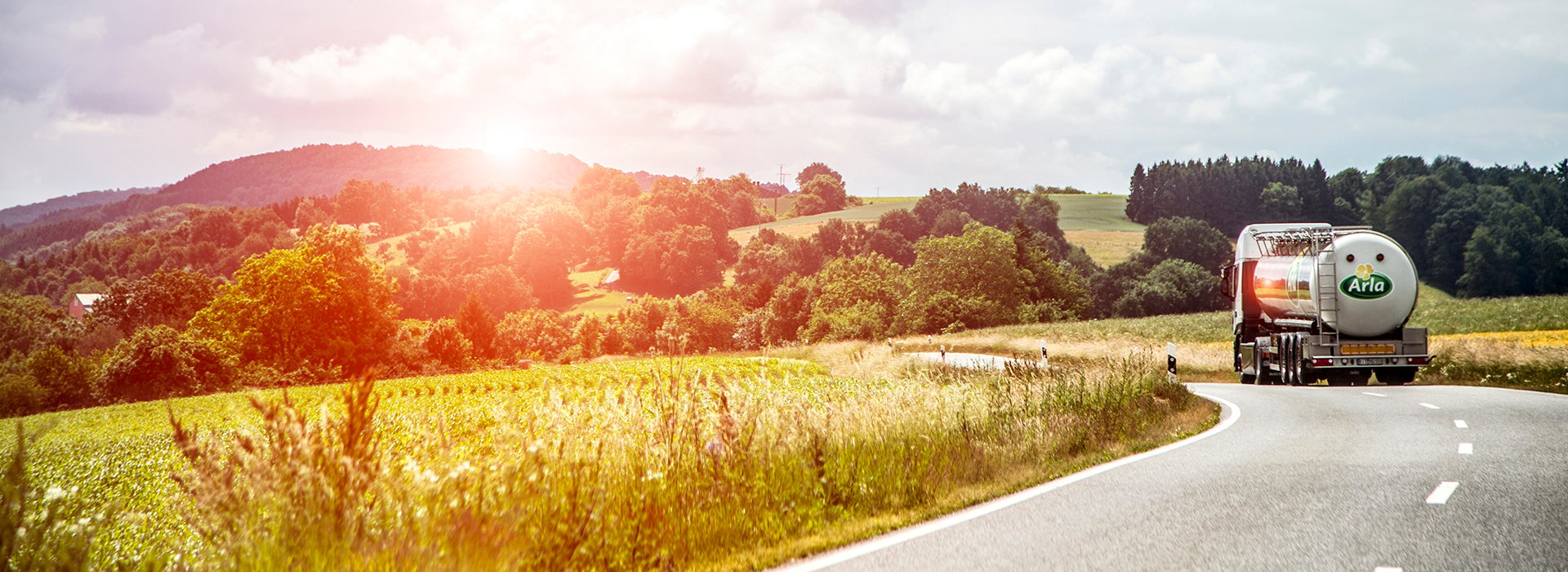Tina Van Hoecke: Shaping the future of the food industry through connection and impact
Extensive experience, an open mindset, and a genuine passion for the food service industry, combined with a strong drive to connect people and create impact, have been key qualities that have helped Tina Van Hoecke to shape her current leadership role as Global Senior Channel Manager Organised Chains for Arla Foods, globally the fifth largest dairy company and a farmer-owned co-operative. Here Tina explains why she thrives in a dynamic, challenging, and exciting international environment and how resilience and cultural collaboration are key to shaping the future, driving value, and bringing solutions to organised chains.


Tina Van Hoecke
Global Senior Channel Manager Organised Chains, Arla Foods
Q.
What has been the progression of your career in the foodservice industry, and what factors influenced your decision to take on a global management role?
I began my career in foodservice in 2008, progressing through various commercial roles from junior sales to senior management. This journey has given me a deep understanding of the industry, leadership, and the ability to build strong customer partnerships.
What makes the foodservice industry so exciting is its dynamic and people-focused nature, where creativity and adaptability are key. In my current role, I collaborate with global restaurant chains to deliver tailored, value-driven solutions that meet their evolving needs.
Pursuing an Executive MBA further strengthened my expertise, particularly in change management, which is crucial in my current role. Joining Arla Foods has given me the opportunity to drive meaningful change, while contributing to sustainable efforts in such a fast-moving industry. Through initiatives like FarmAhead™, we work closely with customers to develop innovative, responsible solutions while ensuring the continued delivery of high-quality nutrition.
“Leaders with an open mind gain a broader perspective and make more informed decisions.”
– Tina Van Hoecke, Global Senior Channel Manager Organised Chains, Arla Foods
Q.
We often talk about changing mindsets and behaviours as an important driver of operational excellence. In your view, how does company culture contribute to operational excellence in international leadership?
Company culture is vital to drive operational excellence particularly in an international environment whereby you have diverse people, teams, nationalities, and cultures. Having a culture of collaboration, inclusion and diversity is so important to drive a global company as Arla Foods. Driving change within an organisation is often met with both enthusiasm and resistance. Effective leadership needs engaging and aligning individuals with strategic objectives while ensuring that diverse viewpoints contribute to informed decision-making. Cultural collaboration is not only valuable but essential, particularly in a global context.
I firmly believe that diversity of thought leads to stronger outcomes and a greater impact. Working in an international environment with diverse cultures and personalities inspires me, and I see harnessing our differences as a key mindset for effective change management. Leaders with an open mind gain a broader perspective and make more informed decisions compared to those with a narrow, tunnel-vision approach. Staying open to feedback and embracing continuous learning are essential. While I have gained significant expertise, I recognise that I am still on a transformative journey, both personally and professionally, as a leader.
Q.
You mentioned Arla’s commitment to sustainability. In what capacity do you see technology and innovation driving operations and providing a competitive edge in the dairy industry?
Technology and innovation are central to efficiency and sustainability, which is the focus of Arla’s FarmAhead™ programme. By gathering data from over 200 points on farm, we help farmers reduce emissions, optimise feed efficiency, and improve energy use. The more sustainable actions they take, the more they are rewarded, ensuring sustainability strengthens both efficiency and resilience in the supply chain. Through FarmAhead™ Customer Partnerships, we also collaborate with customers to develop tailored solutions that support their sustainability goals.
As consumer demand for responsible products grows, transparency in sustainable dairy practices is more important than ever. Sustainability is now a key business differentiator, and AI will play a growing role. Combined with real-time data, AI enhances predictions, optimises processes, and drives further sustainability efforts offering major opportunities for the foodservice industry.
“Combined with real-time data, AI enhances predictions, optimises processes, and drives further sustainability efforts offering major opportunities for the foodservice industry.”
– Tina Van Hoecke, Global Senior Channel Manager Organised Chains, Arla Foods
Q.
How do sustainability, safety, and risk management contribute to operational excellence and business resilience in your view? Can you share how sustainability is shaping global supply chains, with examples from your experiences?
Sustainability, safety, and risk management are essential drivers of operational excellence and long-term business resilience. These elements enhance efficiency, reduce vulnerabilities, and ensure adaptability, particularly in highly regulated industries such as foodservice and dairy, where supply chains are complex and interconnected.
At Arla Foods, our data-driven FarmAhead™ programme ensures that sustainability strengthens both efficiency and resilience, enabling supply chains to adapt to regulatory changes, shifting consumer demands, and climate challenges.
Safety is equally critical, especially in food production and supply chains. Strict hygiene, quality control, and health & safety standards mitigate risks and prevent disruptions. Advanced traceability and digital tracking enhance transparency, allowing for faster responses to food safety risks or supply chain interruptions, reinforcing both consumer trust and operational stability.
Risk management is fundamental to business continuity. The foodservice industry faces multiple risks, from climate change and supply chain disruptions to evolving regulations. Companies that leverage digital tracking, and integrate sustainability into procurement are more agile and resilient. Sustainability itself acts as a risk mitigation strategy, investing in carbon reduction, renewable energy, and circular economy initiatives helps businesses navigate regulatory shifts and market fluctuations.
In today’s globalised world, sustainability, safety, and risk management are interconnected forces that drive efficiency, compliance, and long-term competitiveness. Businesses that proactively integrate these principles not only build resilience against disruptions but also position themselves for sustainable growth and innovation.
Q.
As a leader in global channel management, what are your top three drivers for creating operational excellence in your industry?
First and foremost, sustainability. In my role, we focus on meeting customer demands for environmentally friendly solutions while simultaneously enhancing operational excellence (Opex), creating a true win-win situation.
Secondly, diversity and inclusion are essential drivers of success. Ensuring that diverse voices are heard fosters an open mindset and leads to more well-rounded, informed decision-making.
And finally, collaboration and alignment. It is crucial to bring teams across markets together to uphold shared values and deliver a unified approach, while still respecting and adapting to local market dynamics.
“Diversity and inclusion are essential drivers of success. Ensuring that diverse voices are heard fosters an open mindset and leads to well-rounded, informed decision-making.”
– Tina Van Hoecke, Global Senior Channel Manager Organised Chains, Arla Foods